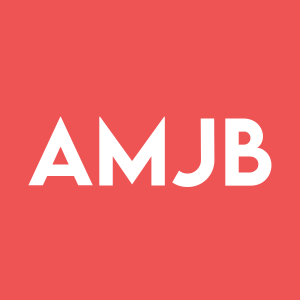AMJB structured notes linked to S&P 500, Nasdaq-100 and XLE fund
JPMorgan Chase Financial Company LLC is offering structured “Review Notes” linked to the least performing of the S&P 500® Index, the Nasdaq-100 Index® and the Energy Select Sector SPDR® Fund, fully and unconditionally guaranteed by JPMorgan Chase & Co. The notes can be automatically called on scheduled Review Dates starting on December 8, 2026 if the closing value of each underlying is at or above its Call Value, paying back $1,000 plus a Call Premium Amount that steps up from at least 11.75% to at least 58.75% of principal.
If the notes are not called and, on the final Review Date, each underlying finishes at or above 70% of its Initial Value, investors receive only their $1,000 principal per note. If any underlying ends below its 70% Barrier Amount, repayment is reduced dollar-for-dollar with the loss on the worst performer, and all principal can be lost. The notes pay no interest or dividends, are issued in $1,000 minimum denominations, are unsecured and unsubordinated, and are not listed on an exchange. The estimated value is approximately $925.50 per $1,000 note, and will not be less than $900.00 when finalized, reflecting embedded fees, hedging costs and issuer funding assumptions.
Positive
- None.
Negative
- None.
FAQ
What are the JPMorgan AMJB review notes described in this 424B2?
The AMJB review notes are structured securities issued by JPMorgan Chase Financial Company LLC, guaranteed by JPMorgan Chase & Co., whose payoff depends on the performance of the S&P 500® Index, the Nasdaq-100 Index® and the Energy Select Sector SPDR® Fund. They can be called early at a premium or, if held to maturity, may return less than principal based on the worst-performing underlying.
How can investors in JPMorgan AMJB notes receive an automatic call payment?
On any scheduled Review Date starting December 8, 2026, if the closing value of each underlying is at or above its Call Value (100% of its Initial Value), the notes are automatically called. Investors then receive $1,000 per note plus the applicable Call Premium Amount, which ranges from at least 11.75% on the first Review Date to at least 58.75% on the final Review Date, and no further payments are made.
What happens at maturity for JPMorgan AMJB notes if they are not called early?
If the notes are not automatically called and the Final Value of each underlying is at or above 70% of its Initial Value (the Barrier Amount), investors receive their $1,000 principal per note. If any underlying finishes below its Barrier Amount, the payout becomes $1,000 plus $1,000 times the Least Performing Underlying Return, so a 60% decline in the worst underlying would reduce the payment to $400.
What are the main risks of investing in the JPMorgan AMJB review notes?
Key risks include the possibility of losing more than 30% and up to 100% of principal if the least performing underlying falls below its Barrier Amount, as well as credit risk of JPMorgan Chase Financial Company LLC and JPMorgan Chase & Co. The notes do not pay interest, provide no dividends from the indices or fund, are not FDIC insured, are not listed on an exchange, and may have limited or no secondary market liquidity. Sector and volatility risks also apply, particularly from the energy-focused fund component.
Why is the estimated value of the JPMorgan AMJB notes below the $1,000 issue price?
The preliminary disclosure states that if priced today the estimated value would be about $925.50 per $1,000 note, and when finalized it will not be less than $900.00. This gap reflects selling commissions, projected hedging profits or losses, hedging costs and the issuer’s internal funding rate, all of which are included in the original issue price but reduce the modeled economic value to investors.
Do JPMorgan AMJB note holders receive dividends or voting rights on the underlyings?
No. Investors in these notes do not receive dividends paid on the Energy Select Sector SPDR® Fund or on the securities in either index and have no ownership or voting rights in the underlying stocks or the fund. Returns come solely from the contractual payoff formula of the notes.
How are JPMorgan AMJB review notes generally treated for U.S. federal income tax purposes?
JPMorgan’s special tax counsel, Davis Polk & Wardwell LLP, opines that it is reasonable to treat the notes as “open transactions” that are not debt instruments, so gain or loss would typically be capital (long-term if held more than a year). However, the IRS could disagree, and future tax guidance on prepaid forward-style instruments could materially affect this treatment, possibly retroactively. Investors are urged to consult their tax advisers.







